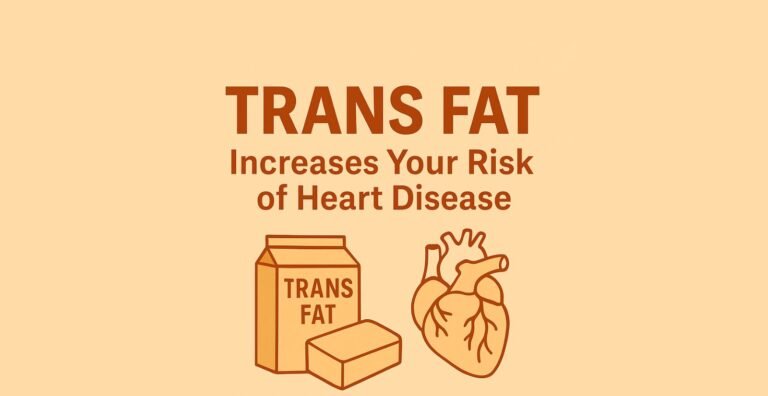Top Health & Wellness Product Reviews with Exclusive Sale Prices!
Love Your Heart: Essential Strategies to Prevent Heart Disease

Heart disease remains one of the leading causes of death globally, but the good news is that it’s largely preventable. By making intentional lifestyle changes, you can protect your heart and reduce your risk of developing heart disease. In this post, we’ll explore essential strategies for heart health, backed by science, to help you build habits that will benefit your heart in the long run.
1. Eat a Heart-Healthy Diet
A balanced diet is one of the most powerful tools for preventing heart disease. Focus on incorporating whole foods, especially those high in fiber, vitamins, and minerals, to support cardiovascular health.
- Embrace Healthy Fats: Not all fats are created equal. Omega-3 fatty acids, found in fish like salmon and trout, as well as in walnuts and flaxseeds, have anti-inflammatory properties that can help lower cholesterol. Aim for at least two servings of fish per week.
- Increase Fiber Intake: Whole grains, fruits, and vegetables are rich in fiber, which helps reduce cholesterol levels and maintains a healthy weight.
- Limit Salt and Processed Foods: High sodium intake can raise blood pressure, a major risk factor for heart disease. Choose fresh, whole foods over processed or canned options to control your salt intake.
2. Get Regular Exercise
Physical activity strengthens the heart and improves circulation. Regular exercise helps maintain a healthy weight, lowers blood pressure, and increases “good” HDL cholesterol, which removes excess cholesterol from the bloodstream.
- Target 150 Minutes of Exercise Per Week: Aim for at least 150 minutes of moderate aerobic exercise, such as brisk walking or cycling, or 75 minutes of vigorous activity, such as running, each week.
- Incorporate Strength Training: Strength training twice a week helps build muscle and boosts metabolism, aiding in weight management and overall cardiovascular health.
- Add Daily Movement: Beyond formal workouts, keep your heart healthy by staying active throughout the day. Take the stairs, go for short walks, or even stand up regularly if you have a desk job.
3. Quit Smoking
Smoking is one of the most significant risk factors for heart disease. The chemicals in tobacco damage the lining of blood vessels, increase blood pressure, and lower “good” HDL cholesterol levels.
- Seek Support: Quitting smoking is challenging, but support groups, counseling, and even medication can increase your chances of success.
- Know the Benefits: Within just a few months of quitting smoking, your risk of heart disease begins to decrease. After a year, your risk drops significantly, and the longer you stay smoke-free, the more your heart health improves.
4. Manage Blood Pressure
High blood pressure, or hypertension, often develops without any noticeable symptoms but significantly increases your risk of heart disease. Regularly monitoring and managing your blood pressure is essential.
- Check Regularly: Adults should have their blood pressure checked at least once every two years, and more frequently if they have a history of hypertension.
- Adopt Lifestyle Changes: Reduce sodium intake, increase physical activity, and consider a diet high in potassium-rich foods like bananas, spinach, and potatoes to help keep blood pressure in check.
- Limit Alcohol: Excessive alcohol intake can raise blood pressure. The American Heart Association recommends no more than one drink per day for women and two drinks per day for men.
5. Control Cholesterol Levels
High levels of LDL cholesterol, often termed “bad cholesterol,” can lead to plaque buildup in arteries, which increases the risk of heart attacks and strokes. Managing cholesterol is a key component of heart disease prevention.
- Eat a Low-Saturated Fat Diet: Saturated fats, found in red meat, butter, and cheese, can raise LDL cholesterol levels. Opt for lean protein sources like chicken, fish, and plant-based proteins.
- Add Healthy Fats: Incorporate monounsaturated fats, such as those found in olive oil, avocados, and nuts, which can help raise HDL cholesterol.
- Get Regular Checkups: Adults over the age of 20 should have their cholesterol levels checked every 4-6 years, and more frequently if they have a family history of heart disease.
6. Manage Stress
Chronic stress can contribute to high blood pressure and increase the likelihood of unhealthy behaviors, like overeating or smoking, which negatively impact heart health. Managing stress is crucial for a healthy heart.
- Practice Mindfulness and Meditation: Mindfulness techniques, such as deep breathing and meditation, have been shown to reduce stress and lower blood pressure.
- Stay Connected: Social support can significantly reduce stress levels. Spend time with family and friends, or consider joining a community or hobby group.
- Limit Screen Time: Excessive screen time, especially on social media, can add to stress. Take regular breaks and establish tech-free zones to promote relaxation.
7. Maintain a Healthy Weight
Carrying extra weight, especially around the midsection, increases your risk of heart disease. Obesity is linked to high blood pressure, high cholesterol, and insulin resistance, all of which contribute to cardiovascular issues.
- Follow a Balanced Diet: Focus on portion control and nutrient-dense foods to support weight loss and maintenance.
- Stay Active: Regular exercise plays a critical role in weight management. Engage in both aerobic activities and strength training for optimal results.
- Seek Support When Needed: Weight management programs and support groups can provide accountability and resources if you find weight loss challenging.
8. Monitor Blood Sugar Levels
High blood sugar levels, especially when left unchecked, can lead to diabetes, which significantly increases the risk of heart disease. Regular monitoring and proactive management can help protect your heart.
- Get Tested Regularly: If you’re over 45 or have a family history of diabetes, get your blood sugar tested regularly.
- Limit Added Sugars: Avoid sugary drinks and snacks, which can lead to spikes in blood sugar. Instead, choose whole foods and natural sources of sweetness, like fruit.
- Stay Physically Active: Exercise improves insulin sensitivity and helps regulate blood sugar levels.
9. Get Enough Sleep
Sleep is often overlooked but is essential for heart health. Poor sleep quality or insufficient sleep can contribute to hypertension, diabetes, and obesity, all of which increase heart disease risk.
- Aim for 7-8 Hours of Sleep: Most adults need around 7-8 hours of quality sleep each night.
- Establish a Bedtime Routine: Going to bed and waking up at the same time each day can help regulate your sleep pattern.
- Avoid Stimulants Before Bed: Caffeine, nicotine, and screen time can all interfere with sleep. Try to limit these in the hours leading up to bedtime.
10. Stay Informed and Regularly Assess Your Heart Health
Prevention is easier when you’re informed about your health status. Regular health checkups allow for early detection of any changes in blood pressure, cholesterol, blood sugar, and other indicators.
- Schedule Annual Checkups: An annual physical can identify any potential heart disease risk factors early.
- Ask Questions: Don’t hesitate to ask your healthcare provider about any concerns or symptoms you may have.
- Be Proactive with Your Health: Knowledge is power. Understanding your risk factors and family history can help you make the best choices for your heart.
Conclusion
Protecting your heart requires a proactive approach. By embracing a heart-healthy diet, staying active, managing stress, and keeping regular checkups, you can significantly reduce your risk of heart disease. Small changes, when sustained over time, can lead to substantial health benefits and help you enjoy a longer, healthier life. Remember, loving your heart means investing in yourself – today and for the future.







